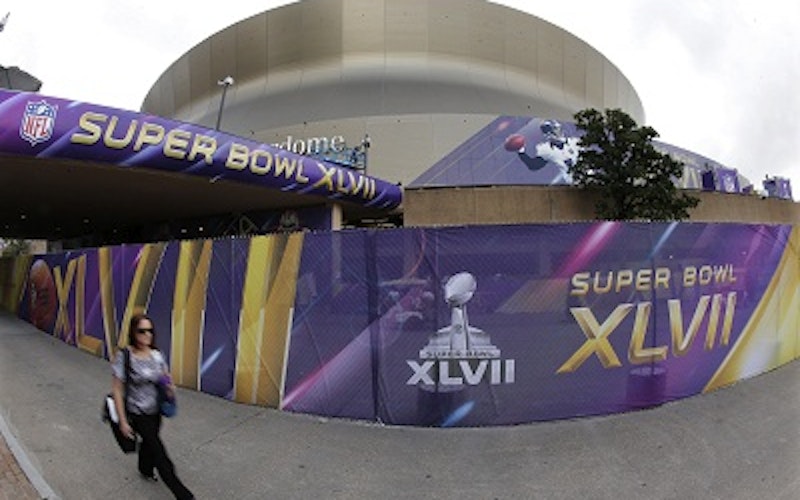
Culture At Large
Is atheism a religion? Not nearly as much as the Super Bowl
There’s been much hand-wringing of late about the fact that unbelief is on the rise. An increasing number of people self-identify as atheist and as having no particular religious belief. Given the growing numbers, a recent New York Times Room for Debate feature highlighted an atheist "church” in London and posed the question, “Is atheism a religion?”
Atheism is not a religion. One key facet of most religions is some kind of organization, tradition, structure and liturgy - a way of worshipping, marking time and connecting humans to one another. The term religio, Augustine notes, is not just about what binds us to God but what binds us to one another. This need and desire for connection - for worship - helps explain the impulse of at least some atheists to borrow from Christianity. Just as the French Revolution turned some churches into temples to Reason, so atheists in London extol the virtues of gathering in order to (essentially) parody a church service. Similarly, Penn Jillette argues that atheists can have all the things that religious believers have, like “fellowship, joy, compassion, service and great music.”
But atheists often struggle with this. Although they certainly sing the praises of Richard Dawkins, they’re not known for great sing-a-longs. Although they might praise the value of fellowship, they are often bound together not by what they are for or what they love, but what they are against.
When the atheist equivalent to the Pope can build something like the billion-dollar Cowboys Stadium, then I’ll worry more about atheism.
But then why is atheism growing when it struggles to bind adherents together into any kind of community? It may be that atheism per se is often simply a by-product of the other loves and liturgies that supplant religious belief. A recent Atlantic article points out that sports in America often function like religions. They give a communal sense of identity and commonality. In Augustinian terms, sports teams are “common objects of love.” And this is the heart of religion: we are bound together with others by what we love, whether that is the true God or something else.
From a Christian perspective, then, atheism as a philosophical position may be quite prevalent, but most people are not, in fact, really atheists. They just love a non-traditional god, such as the Detroit Tigers, the U.S.A., their stock portfolio or an online gaming community. So an atheist church doesn’t concern me the way that the Super Bowl does. When the atheist equivalent to the Pope can build something like the billion-dollar Cowboys Stadium, then I’ll worry more about atheism. If our treasure is going to sustain hundreds of temples like Cowboys Stadium all over the country, it shouldn’t be difficult to recognize that our heart is there also.
The rise of atheism is not a result of people suddenly thinking more clearly or paying homage to human reason over against the unthinking authority of religious faith (to hear Dawkins explain it). The rise of atheism is a result of our distracted loves. Our hearts, our bodies, our marking of time are engaged in the liturgies of sports, of the nation, of the market, of the entertainment media. If we’re honest with ourselves, we Christians often find ourselves bound together with atheists around these common loves, sometimes more so than we are bound to one another or bound to Christ. So as we mark the most holy day in the American sports liturgical year, perhaps Christians ought to worry less about Richard Dawkins and more about Roger Goodell.
Topics: Culture At Large, Arts & Leisure, Sports, Theology & The Church, Other Religions